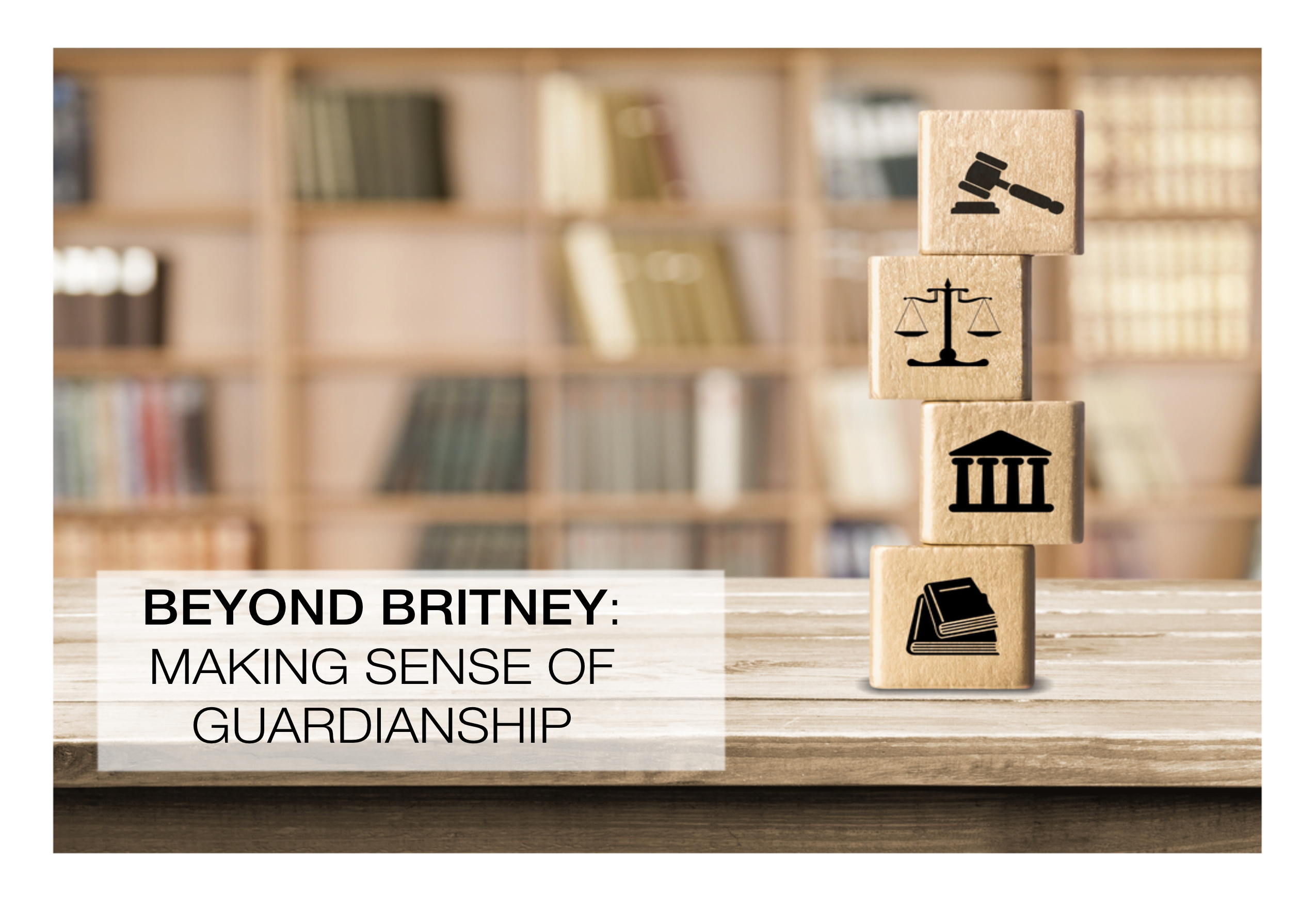When some people think of guardianship, Britney Spears comes to mind. The troubled celebrity seemed to lack control of her finances and personal life, when in 2008, under the insistence of her father, James “Jamie” Spears, she was involuntarily placed under a conservatorship, a form of court-appointed guardianship. Her father was named co-conservator, until he was stripped of the role last November 2021.
Ms. Spears was not alone among celebrities facing guardianship. Others have included Brian Wilson, Joni Mitchell, and even actor Mickey Rooney.
Celebrity situations aside, guardianship can be quite complicated, yet not as uncommon as one may think. In most cases, something will trigger the family or a family member to seek an intervention. This could be wanton and wasteful spending, often associated with a loss of cognition or the perceived onset of dementia, substance use or abuse, or behavior threatening to self or others.
Initially few outsiders questioned whether Ms. Spears needed help; however, many questioned her father being named conservator. Concerns over his alleged abuse aside, which the court should have explored more deeply, theirs was an example of how guardianship / conservatorship occurs. Concerns are raised before the court, usually by family members, who request a guardian be appointed. The court then intervenes, ostensibly with the best intentions of protecting the “ward,” or the person being placed under guardianship.
Guardianship most often occurs when a direct relative – a son, daughter, or spouse – believes the individual is no longer capable of looking after themselves and their affairs. Maybe the family suspects the individual is under undue influence from another person – a caregiver, a friend, or someone they’re close to – and that they are being taken advantage of emotionally or financially.
Guardians can serve several roles. In one application, the guardian may handle only finances; they may handle the medical care, as a healthcare surrogate. For all legal and financial purposes, guardians’ step in as the ward, acting as that person.
Guardianship hearings are official court proceedings, meaning they are public record. Those petitioning the court for guardianship, and those contesting the petition, must argue openly their reasons for the petition. Families sometimes avoid this route, because airing your family’s laundry in public may be embarrassing – and will be permanent public record.
How is the need for a guardian determined? In the case of loss of cognition or dementia, you might start seeing diminished capacity, confusion, repeating things, getting lost, falling, or medical or substance abuse. The court will seek the opinion of a panel of doctors to opine on the subject’s competence.
Who should serve as guardian? In many instances, we see family members step-up, to serve as their loved one’s guardian. As a family member, you may think you’re best suited. However, guardianship can be a thankless job for the well-intended. The hours are long and demands are many. You will have no life.
Even your intentions may be questioned and potentially challenged. Being named guardian, even with the best of intentions, may lead to claims of conflicts of interest or potential undue enrichment. Such claims were made with Ms. Spears’ father serving as her conservator. A neutral, third party may be better suited to the role and less conflicted.
I’ve been asked by families to assist as conservator or guardian. In one matter, a family asked me to assist the guardian for an elderly parent who they believed was being taken advantage of by their second spouse. In another case, I was approached by the courts at the request of the ward’s children to oversee assets in the hundreds of millions of dollars. The children feared the custodian was siphoning off money for themselves .
When finances are significant or inheritances are involved, expect “relatives” – both legitimate or bad actors – will magically appear to protect their interest or seek their share.
How do you find a guardian, custodian, or someone to oversee how ward’s assets are being managed? It’s often by word of mouth, referral, and recommendation. Even if you recommend an individual to the court, the court will make the ultimate appointment after hearing opinions from the different family members. So be prepared to support or challenge the candidate before the court.
If you think guardianship might be in order for your loved one, plan your steps. Guardianship is an emotional process wrought with conflict, potential for accusations of misdeeds or self-dealing. If you’re overwhelmed, consider hiring an advisor to help with the process. “Guardianship” is not necessarily bad. Well-planned, it could be the ideal solution to challenging situations.

Leave A Comment